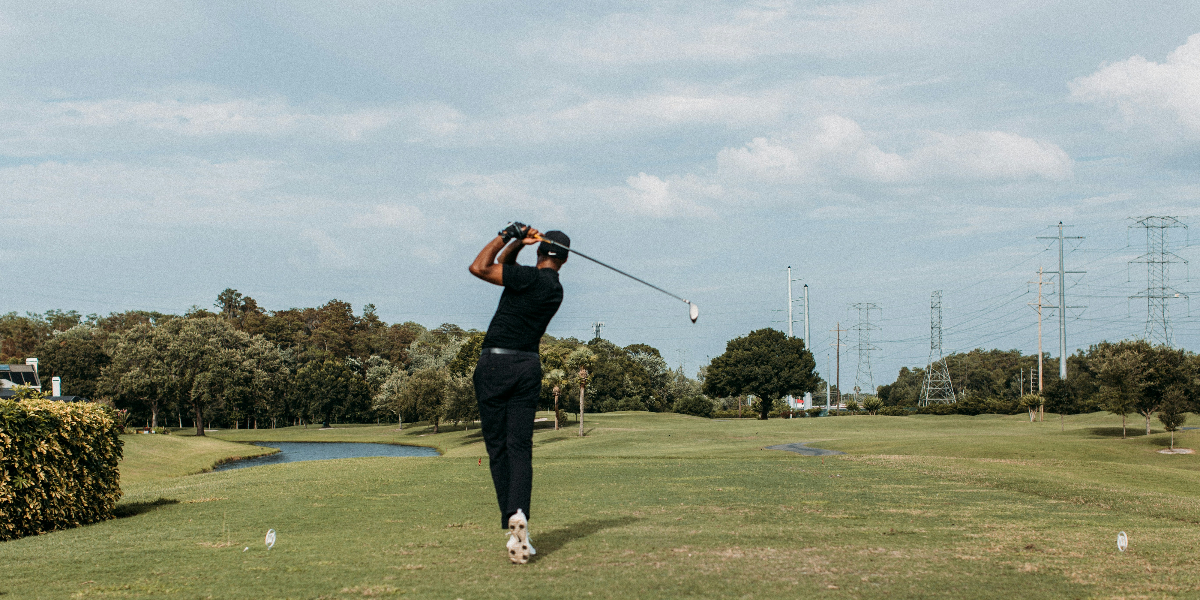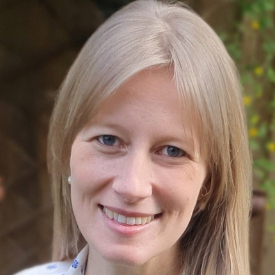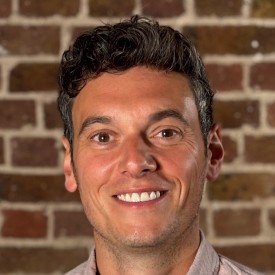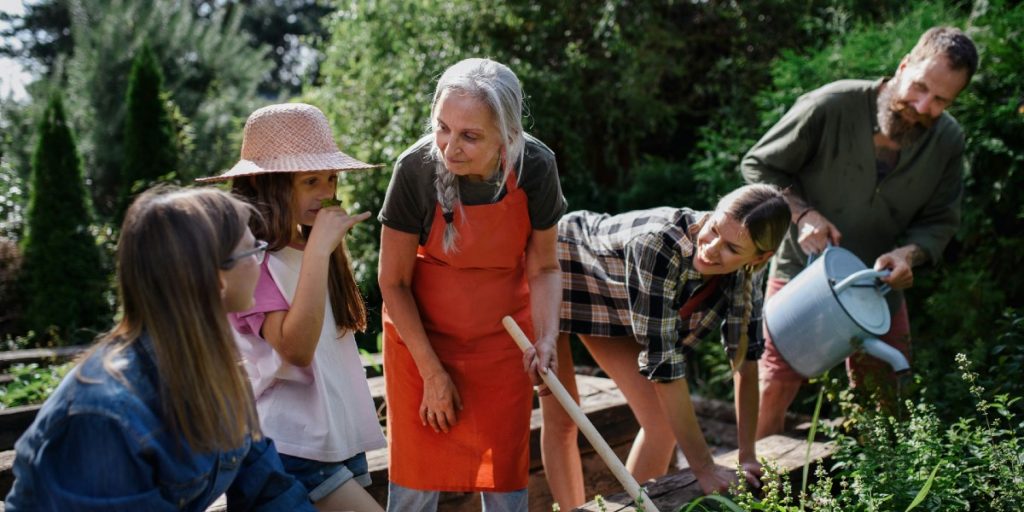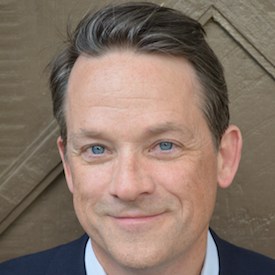Jimmie James is a retired energy executive. He was the first in his family to graduate high school and earn a college degree. He spent over three decades working at ExxonMobil, where he held key leadership positions in their Refining, Marketing, and Supply organizations. After retiring from the company’s executive leadership, he set out to become the first person to play America’s top 100 golf courses.
What’s the big idea?
Jimmie James grew up impoverished in the Jim Crow South, in a shack without electricity or plumbing. He put himself through college and then determinedly rose through the ranks at ExxonMobil. By the end of his 33-year career, he had gone from entry-level engineer to globe-trotting executive. He came from a world that lacked almost everything and ended up gaining access to people and places that lacked almost nothing.
Few places confronted him with the distance between where he started and how far he’d come as starkly as golf courses. An avid golfer, James decided to attempt the impossible: to play each of Golf Digest’s 100 greatest golf courses in one year. On this quest, facing the gulf between his childhood and career as a successful executive, he reflected on race, class, family, and the power of perseverance. By the end of his journey through the most exclusive and opulent courses in America, James braided his love of golf with the path that led him to this opportunity in the first place. In his memoir, James shares wisdom about how he came to defy the odds in front of him time and time again.
Below, Jimmie shares five key insights from his new book, Playing from the Rough: A Personal Journey through America’s 100 Greatest Golf Courses. Listen to the audio version—read by Jimmie himself—in the Next Big Idea App.
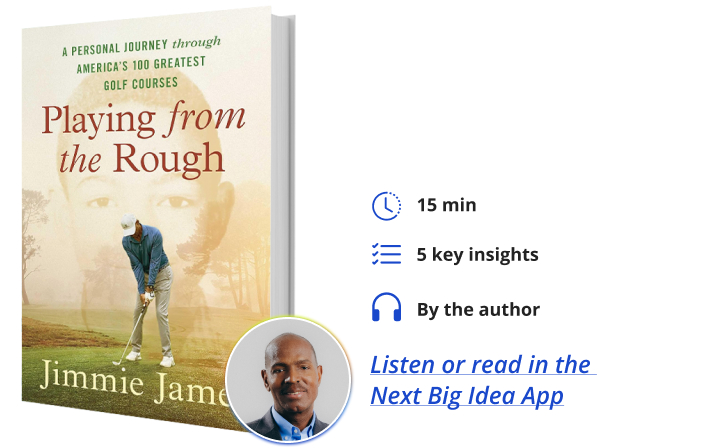
1. The heat of a common passion can melt away differences and foster unity.
I was born invisible. My original birth certificate, now yellowing in the basement of the Walker County courthouse in Huntsville, Texas, contains two details considered most vital about me in 1959: Colored and Illegitimate. Literature and history have often been written as if people like me are voiceless extras in a movie.
During my yearlong odyssey through America’s most privileged golf venues, my life often unreeled before me. My round at Augusta National Golf Club, America’s most exclusive golf club, unleashed fraught memories from my childhood. The world I found myself in during the ensuing stops often triggered other recollections from my past. I’d come from a world that lacked almost everything to find myself exploring a world that lacked almost nothing. The disconnect was almost too vast to fathom.
While traveling miles upon miles and playing course after course, I connected with a country I found at once beautiful and flawed, often bighearted but sometimes wrong-headed, proud, and ashamed. After 90,756 miles, 8,797 strokes on courses across 33 states, 82 nights in hotels and other people’s homes, and more money than I care to talk about, I played on all 100 of the country’s greatest courses. I’d gotten help from people of different races, genders, religions, and classes. Everywhere I went, I felt welcome, respected, and admired for the audacity of my quest and my passion for the game. I felt seen.
I spent time with club members, security guards, locker room and parking lot attendants, caddies, and waitstaff, as well as people in the communities I visited, whether at a gas station, a restaurant, on an airplane, train, or bus, or inside bars and hotel lobbies. At the clubs, I found that a common passion for golf was enough to bridge many differences. But more than the bond of golf, I found a common desire to love, laugh, cry, and hope for a better life for the ones we hold dear.
I reject the notion that, as a society, we are only as strong as our weakest link. When we work together, we can leverage our strengths and overcome our weaknesses.
2. Our lives are determined at the intersection of aspirations and adversity.
Who we become, what we achieve, and what we contribute are determined by whether we quit when our biggest challenges threaten to derail our biggest dreams or find a way to forge on.
I talk a lot about growing up in poverty, but I never say I was underprivileged. Privilege is not just about wealth; it comes in many forms. Mine came in the form of a mother who taught all eight of her kids to never quit. My mother’s unwavering spirit was a beacon of hope and determination. Despite our relentless hardships, she instilled in us the belief that perseverance could transcend any obstacle. She taught us that quitting was never an option and that the true measure of success was not what we achieved but what we persistently overcame.
“The choice to persevere, to hold on to hope, and keep moving forward is always within grasp.”
In my professional life, I faced numerous challenges that tested my resolve. There were moments when the weight of adversity felt unbearable, but I remembered my mother’s words and the strength she embodied. Like when a supervisor placed a box of rocks in the middle of the table during a team meeting to represent how much sense he thought I had, or when a coworker pulled out a Ku Klux Klan hood while we were crawling through a dark tower, thinking I might find it historically interesting. However, the choice to persevere, to hold on to hope, and keep moving forward is always within grasp. By choosing to never quit, we honor the struggles of those who came before us and pave the way for those who will follow.
In every challenge lies an opportunity for growth. Every setback is a setup for a comeback. My journey has taught me that adversity is not a barrier but a catalyst for change. By embracing hope and refusing to quit, we unlock our true potential and contribute to a better, more resilient society.
3. People are resilient, but life is tenuous.
The rain poured down in sheets during my third trip to play golf in California. Hills stripped of their protective vegetation by wildfires got so soaked that they slid toward the Pacific. Montecito, the wealthy enclave sandwiched between the foothills of the Santa Ynez Mountains and the ocean, where I was scheduled to play golf at the Valley Club of Montecito, was hit especially hard. More than twenty people lost their lives. Some were washed out to sea.
Tragedies like that are a sobering reminder of life’s fragility. I lost a close friend and work colleague early in my career with Exxon. An African American mechanical engineer who graduated from the University of Kansas, Ed and I cemented our friendship over long days solving operating equipment challenges inside the Baytown refinery. He died of acute leukemia at age 31. I sat with him at the hospital a few hours before his last breath.
Ed’s passing was a wake-up call. Up until then, my job was my life and so I began to seek more balance. I started taking “stop and smell the roses” trips: drives across the country to soak in the sights and appreciate friends and strangers alike. I explored national parks, toured local museums, ate in roadside diners, and nosed around mom-and-pop shops. I talked with folks everywhere I went.
As much meaning and purpose as we derive from our careers, we must be mindful of the delicate balance between our personal and professional lives. While we may be able to overcome many challenges, the fragility of life is such that it can evaporate in an instant.
4. Happiness is not the result of circumstances.
My mother taught us kids not to bemoan the things we didn’t have and couldn’t control. She challenged us to find joy in working to overcome our challenges. We were to take life as it came, to “play the ball as it lies.” My mother believed that when you face your challenges and appreciate what you have rather than fixating on what you lack, happiness follows.
Being poor wasn’t fun. Absorbing the blows of my stepfather’s fists or his lashes from fan belts, tree branches, and whatever else he could find wasn’t fun. Being laughed at and bullied in school wasn’t fun. Being evicted from our rat and roach-infested homes wasn’t fun. Becoming immune to hunger pangs wasn’t fun. Wearing flip-flops to class because they were the only shoes I could afford wasn’t fun.
“She challenged us to find joy in working to overcome our challenges.”
Yet, I still found joy during my childhood—a sense of peace that was exhilarating. I felt it when I let go of my concerns about what I didn’t have and embraced my appreciation for what I did. Whacking a deformed doll’s head with a discarded piece of lumber for a home run or marching around a dirt road on homemade stilts left me in a state of unexplainable bliss. In moments like those, I found joy. They confirmed my mother’s belief that joy can come from one’s state of mind rather than one’s circumstances.
5. We are all in this together.
As the air leaked rapidly from the rear passenger side tire on my oversized rental SUV, I pulled over in the dark and rain on a chilly early spring night. When the tow truck driver arrived, I greeted him and shook his hand. Calloused and scarred, it reminded me of my grandfather’s, evidence of a lifetime of hard work. Even in pitch black, his eyes looked weary and tired.
“I’m George,” he said, his voice gruff and short.
I explained that I needed a tire change, not a tow. He stopped dead and frowned. “They told me you needed a tow,” he said. “I just drove fifty fucking miles—for ten dollars.” The tension grew palpable.
I was stunned. He’d come out on a miserable night to make what amounted to a couple of dollars an hour. It was less than I spent on a sandwich and drink for my caddie at the turn.
“How much do you get for a tow?” I asked.
“Twenty,” he answered.
That night, two contrasting Americas had collided on the side of Interstate 71: George, a white man in his mid-fifties who looked older than his years from a lifetime of working with his hands, feeling gut-punched by the thought of making only ten bucks for changing a tire; and me, a Black man traveling across the country, spending tens of thousands of dollars to chase a dream most folks would consider whimsical at best.
I told George that my tip would make his trip worthwhile. After he finished changing the tire, I handed him fifty dollars. His resentment evaporated as quickly as the air had leaked from my tire. He smiled and extended a hard, now-gritty hand.
In the end, it’s not about which America we live in. It’s about understanding and respecting both. It’s about realizing that we are all in this together.
To listen to the audio version read by author Jimmie James, download the Next Big Idea App today:












